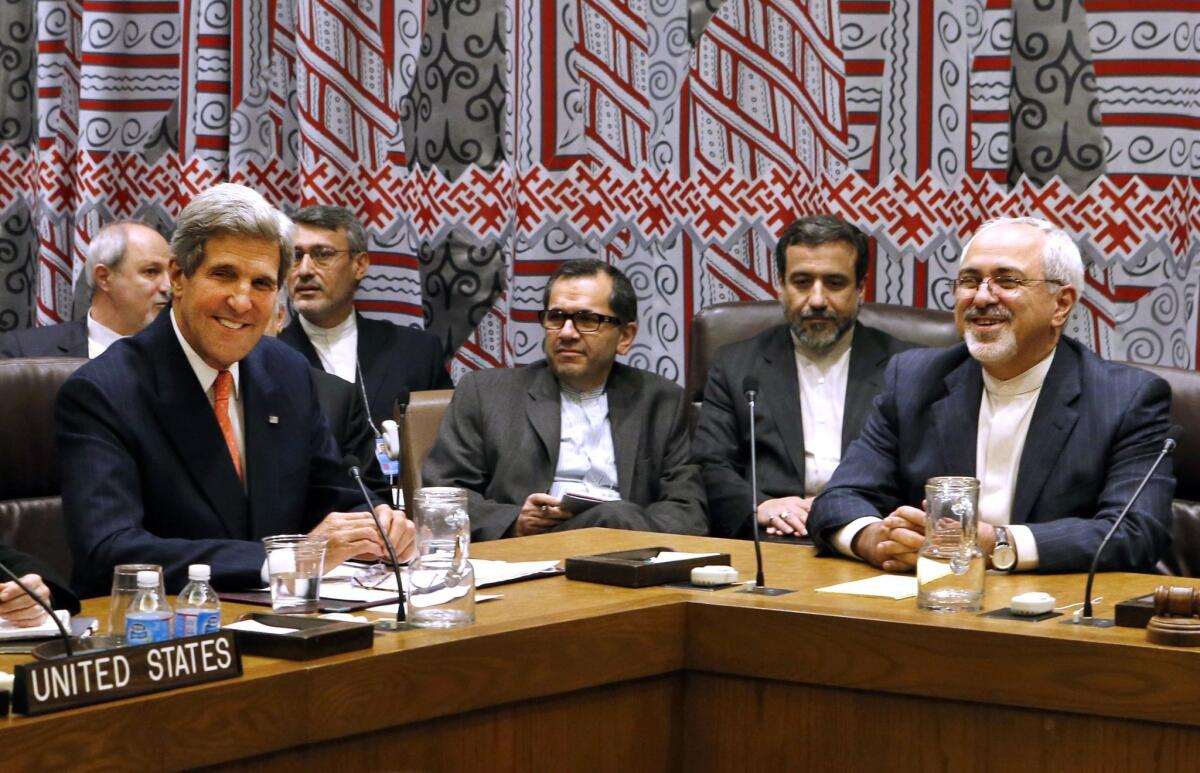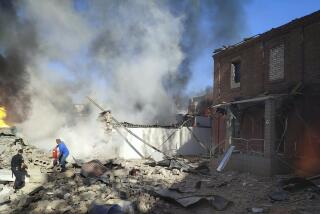Iran to offer ‘road map’ for resolving nuclear dispute with West

TEHRAN -- With international talks on Iran’s nuclear program set to begin Tuesday, Iranian officials said their negotiating team would offer a broad “road map” proposal for resolving the issue, but would also seek to protect key aspects of the country’s nuclear program.
Iran’s state-controlled media quoted officials saying that they would offer to halt the medium-enrichment of uranium, a process that brings it within reach of the concentration required for nuclear bombs.
But reports also insisted that Iran wouldn’t halt low-level enrichment, and wouldn’t close its underground enrichment facility at Fordo, or the Arak heavy-water plant that critics fear is intended to open the way to a plutonium-based nuclear weapon.
Iran’s negotiating team is meeting in Geneva for two days of talks with officials of the United States, Russia, China, France, Britain and Germany.
Though such talks have been occurring for 10 years without resolution, hopes have been raised by recent signs that Iran’s newly installed government is ready to make compromises. Last month, President Obama spoke by telephone with Iranian President Hassan Rouhani, ending three decades of official estrangement.
Abbas Araghchi, Iran’s deputy foreign minister and a key negotiator, was quoted by the Iran Student News Agency as saying that the negotiating team will offer a three-part program that lays out a “road map” for finally resolving the contentious issue.
Araghchi said the long-term plan was intended to gradually build trust on both sides and would require the West to ease the punishing economic sanctions it has placed on the Iranian economy as punishment for Tehran’s nuclear pursuits.
An account carried by the Iran Student News Agency quoted officials as saying Iran wouldn’t insist on upfront guarantees of what it insists is its right to enrich uranium. But the six nations involved in the talks with Iran would have to acknowledge at the start of talks that they would support Iranian low-level enrichment at the end of the negotiations, if all went well.
Although Iran continues to refuse to send any enriched uranium outside the country, it is willing to grant the United Nations’ nuclear watchdog agency more access to its nuclear facilities, news agencies reported. The Iranians also signaled that they are now willing to deal directly with the United States.
With these statements, Iranian officials “may be setting up their red lines for the talks,” said Ray Takeyh, an Iran specialist at the Council on Foreign Relations.
Meanwhile, in Germany, former Iranian nuclear negotiator Hossein Mousavian said former Iranian President Mahmoud Ahmadinejad had been prepared to reduce Iran’s uranium enrichment level to below 5%, but that he didn’t follow through because no agreement was reached with the West.
ALSO:
Hundreds arrested in Moscow anti-migrant riots
Car bombs explode near state TV headquarters in Syria
Syria: Seven Red Cross workers abducted, aid group says
paul.richter@latimes.com
Special correspondent Mostaghim reported from Tehran, and Richter from Geneva.
More to Read
Start your day right
Sign up for Essential California for news, features and recommendations from the L.A. Times and beyond in your inbox six days a week.
You may occasionally receive promotional content from the Los Angeles Times.







